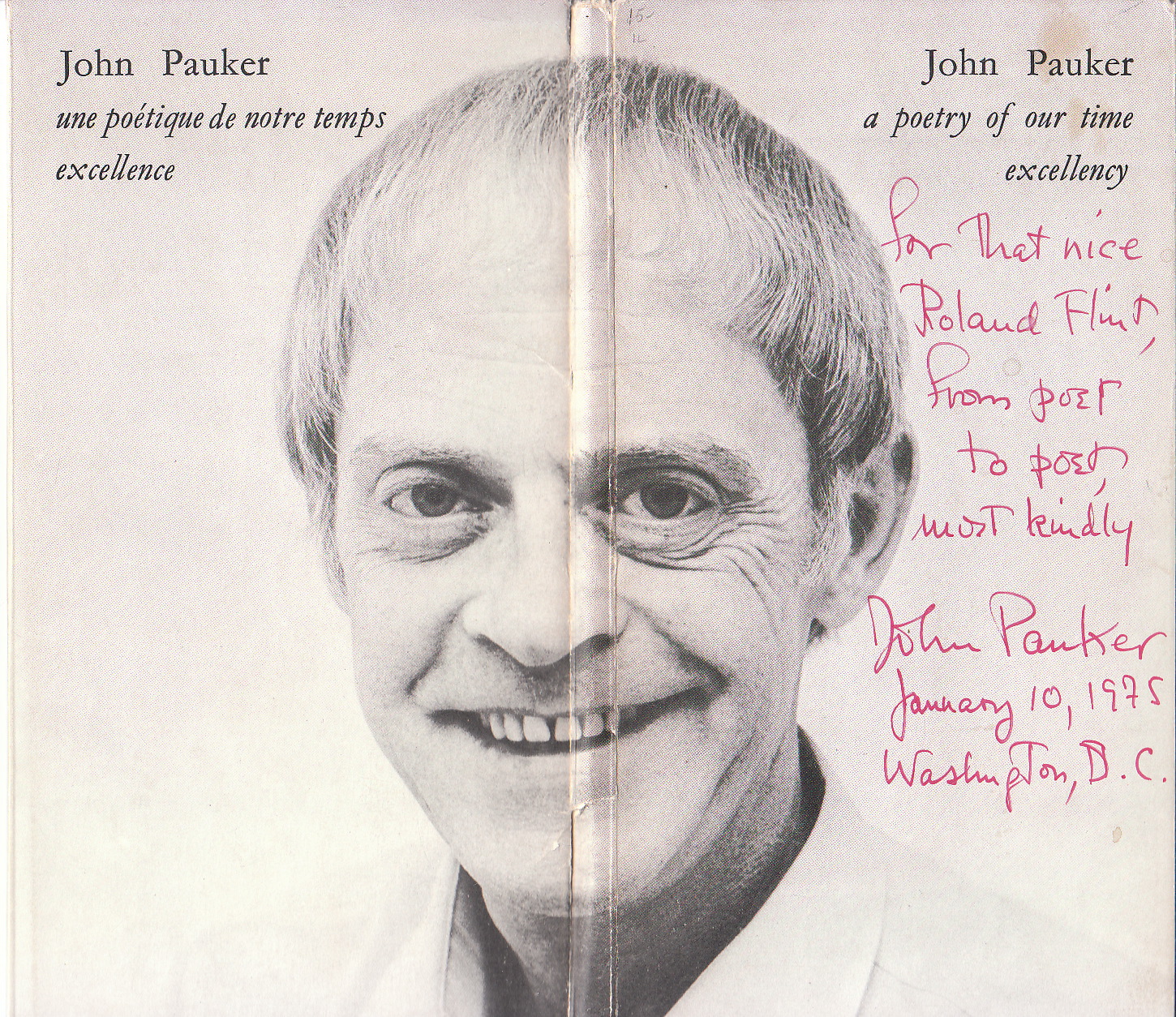The Resurrection Issue
Volume 14:3, Summer 2013
THE POET IN WASHINGTON
The ills of a poet are dull and routine affairs
Neglect, misunderstanding.
To liven his life, lets kick the poet downstairs
And hear his head crunch on the landing.
VILLANELLE FOR VIRGINIA
(on lines from Conrad Aiken)
Nor can time hinder us, or space embarrass,
Ourselves the victor-victims of them both
Let us remember this when we embrace,
Two bodies poised, congress of two careers:
In us are met the powers of time and space.
The function which enjoins this meeting-place
Coordinates our singular hemispheres:
Let us remember this when we embrace.
And integrated so, we form a base
For a whole world, infinity of years:
In us are met the powers of time and space.
This point, determined, no power can erase,
For congruent affection never veers:
Let us remember this when we embrace.
Freely we love, this is our special grace,
Votaries of election have no fears:
In us are met the powers of time and space.
Winning equation! But lest time efface,
Resolve and melt our union in your tears,
Let us remember this when we embrace:
In us are met the powers of time and space.

Book cover from rare bilingual edition of two of Pauker’s books, bound together, published by Imprimerie Mazarine, Paris.
SPRING SONG
Now does the brute earth
Assume a new style
Vested in cunning
Coated in guile
Here is a beastliness
Covered with lies
Here is a werewolf
Making sheeps eyes
Now is the dandy earth
Guised for the feast
Sycophant garb on the
Exuvial beast
Now is the vain earth
Suited for seduction
Clothed for incitement
Model for passion
Here is the rebirth
Of a wayward master
Seedling of mischief
Diaster of disaster
Now is the bully earth
Wearing temptation
Luring ripe innocents
To fruitless fruition
Now does the gangster earth
Dress grander still
Satan artorial
Dressed to kill
Here is the trickery
The double cross
Ready to play us
To an earthly loss
FLIGHTY POEM
The sins we commit, in act or in thought, become birds.
The billion birds you see darken the sky are our sins
Flying south.
Aloft or at rest, the billion birds
Endlessly chipper about the sins we commit.
They tattle to God in the sky, in the south, they
Darken the sky with our sins, and they they fly back.
Some fall, but unfaltering sins beget new birds to
Darken the sky.
Look.
It is black.
LATER POEM
It was a country where they were too kind
To give you the time of day when you asked for it.
Instead they asked, What time would you like it to be?
Exasperated, you did not know except
You wanted it to be earlier than it was,
Whenever.
They obliged.
Exasperated, you
Wanted to be without obligation, they
Answered a question with a question, you
Knew it was wrong, and so did they,
But they wouldnt give you the time of day.
MORNING POEM
The town is awake again, and on the go.
The traffic, the morning newspapers, the plague,
The roller coaster, the roaches, the circuit court,
The salesmen, the rumors, the money and my blood
Are circulating viciously.
POÈME DU MATIN
La ville se réveille, se met en marche.
La circulation, les journaux du matin, la peste,
Les montagnes russes, les cafards, la cour de circuit,Les démarcheurs, les bruits, largent et mon sang
Tournent en ronds, cercles vicieux.
MISUNDERSTANDING POEM
How helpful to have a
language in common.
It enables us to misunderstand
one another more
fluently.
POÈME DU MALENTENDU
Comme il est utile davoir un
langage en commun.
Il nous permet de nous mal
comprendre
plus couramment.
Translation into French by Andrée de Serres Maggio, from A poetry of our time/une poétique de notre temps.
John Pauker (1920—January 22,1991) was born in Budapest, Hungary and moved to the US as a child in 1924. He is the author of fourteen books; four of his books of poems were published in the United States: Yoked by Violence (1949), Excellence (1968), Angry Candy (1976), and In Solitary and Other Imaginations (1977). He also published books in Iran, India, and France, and wrote fiction, criticism, plays (including one produced on Broadway in 1959, called Moonbirds), and translated literature from many languages. As a representative of the American Information Services, Pauker served in Algiers and Germany during WWII. He was a political commentator for the Voice of America radio, and later worked for the US government is several capacities, including White House speechwriter, for the US Embassy in India, and the US Information Office, where he retired in 1975 as chief policy guidance officer. Pauker was editor of the literary journal Furioso from 1947 to 1953, and also served as advisory editor to Voyages. His translation of Lajos Zilahy's novel The Dukays from Hungarian into English became a bestseller in 1949. Pauker, who lost many relatives in the Holocaust, sponsored a number of writers and intellectuals to the US. Solomon Deressa of Ethiopia and Arnost Lustig of Czechoslovakia are among those who credit Pauker with saving their lives. He regularly hosted evenings of international writers in his home, which he dubbed More Fun House, and helped exiles find teaching positions and other jobs. He was fluent in seven languages. Thanks to The Word Works, Inc. for permission to reprint some of these poems. To read more by and about this author: The Word Works: Out of Print Books (reprints 3 poems, with bio) John "Gunboat" Pauker (1920-1991) by Elisavietta Ritchie: Forebears Issue